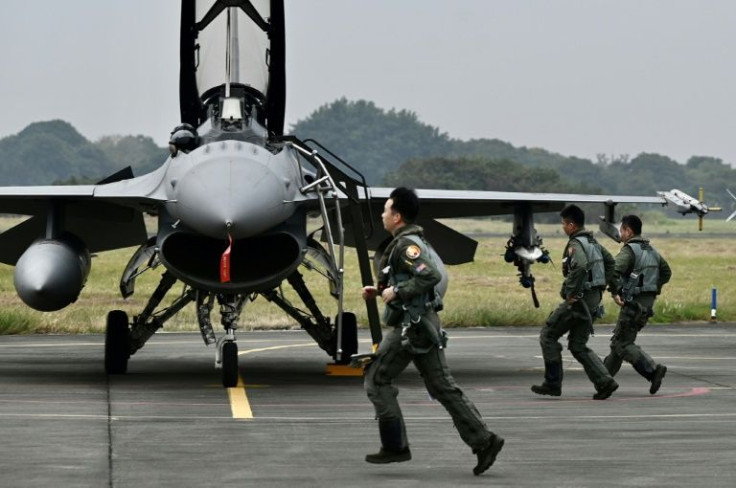Defense Expert's Stark Warning To Washington: Taiwan Cannot Be Defended, Sanctions 'Self-Defeating'
KEY POINTS
- Ukraine model of lethal and humanitarian assistance won't work in Taiwan: Sascha Glaeser
- China may try to intercept ships and planes trying to deliver aid
- The U.S. will fail to convince other countries to impose sanctions against China
Calling sanctions as a tool to deter China "self-defeating," a defense analyst has warned that "there is little the United States could do" to reverse Taiwan's fortunes if a war breaks out with China.
Sascha Glaeser, a research associate at Defense Priorities, a Washington-based think tank, said the U.S. should use "military restraint" in response to a Chinese attack on Taiwan, which will be a swift and brutal affair.
China sees Taiwan as a breakaway province rather than as a separate country and has recently stepped up military exercises aimed at a forceful reintegration of the country with the mainland. The U.S. has tried to maintain ambiguity about whether it will militarily defend the democratically ruled island if China tries to invade, but President Joe Biden has recently said repeatedly that Washington will come to Taiwan's military defense.
Writing in National Interest, Glaeser argued: "Americans may be sympathetic to the very real threat Taiwan faces from a much larger neighboring power. However, a U.S.-China war would bring about the same unacceptable risks of high casualties and an acute threat of nuclear exchange. Therefore, as the United States has avoided direct military conflict with Russia on behalf of Ukraine, it must also avoid direct military conflict with China on behalf of Taiwan."
Glaeser, who is an expert on U.S. grand strategy, international security, and transatlantic relations, said several factors will prevent the U.S. from supplying massive amounts of humanitarian and lethal aid to Taiwan, as it did in Ukraine.
Not only does Taiwan lack strategic depth like Ukraine, but it also stares at a swift invasion as China would do everything to "avoid the pitfalls of a protracted conflict."
"And while major fighting would be brutal, it will likely be swift, thus preventing the U.S. or global aid from being delivered in time to be employed. Moreover, attempting to aid Taiwan also risks getting dragged inadvertently into hostilities, as China may try to intercept ships and planes attempting to deliver aid," he wrote.
Citing how Washington has failed to convince other countries, including those in Asia, to cooperate with economic sanctions against Russia, the analyst said a similar move against China would be fruitless.
"The economic fallout of a similar response to a China-Taiwan conflict would result in far greater worldwide consequences given China’s interdependence within the global economy. Convincing other countries to impose severe harm on their domestic economies on behalf of Taiwan will likely be impossible, as China is the top trading partner of over 130 countries, including the United States," Glaeser added.
He said "there is little the United States could do" to reverse Taiwan's fortunes if a war breaks out, and suggested that the "feasible strategy is to pursue regional deterrence and economic diversification." The U.S. can prompt its Asian allies to improve their defense capabilities and "leverage its vast network of allies to lead an effort to diversify global supply chains and decouple key critical industries."
Calling sanctions "self-defeating," the analysts said the U.S. and China will need to learn to live with one another.
"Forceful reintegration of Taiwan into mainland China would be a disaster for Taiwan—and perhaps China—but it does not need to be a disaster for the United States. Wise statecraft and clear-eyed realism must be employed to ensure U.S. security and prosperity, regardless of Taiwan’s official political status," the analyst said.

© Copyright IBTimes 2025. All rights reserved.





















